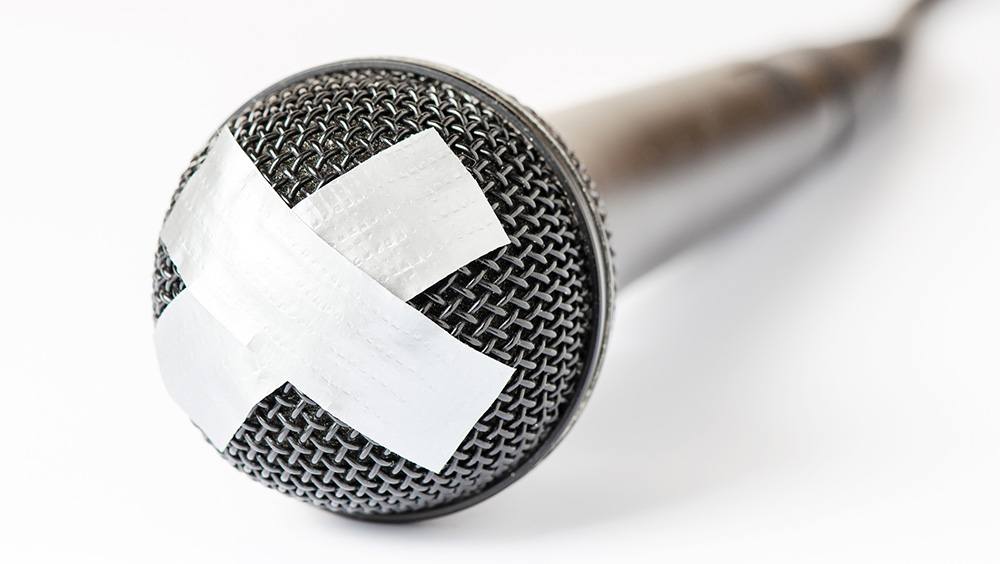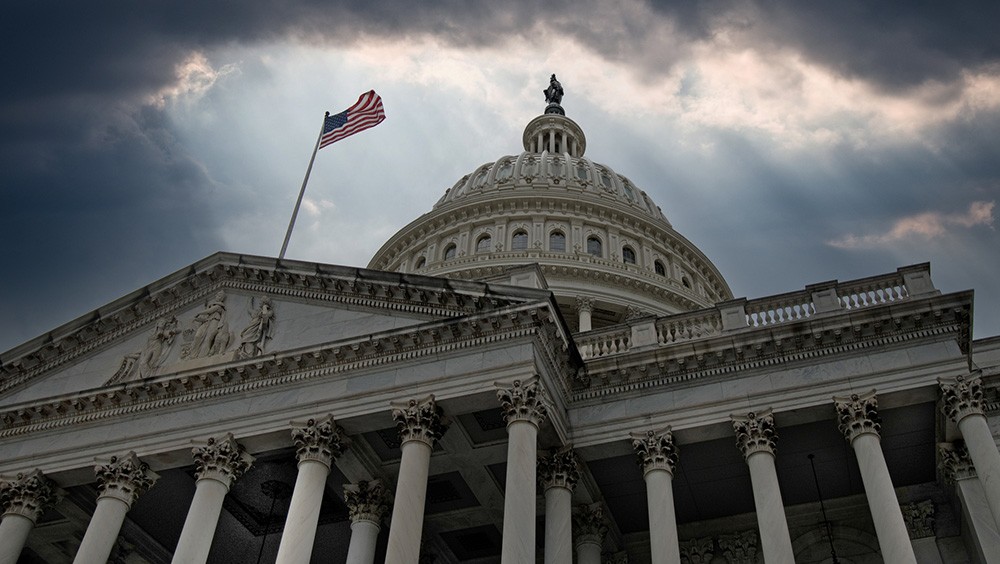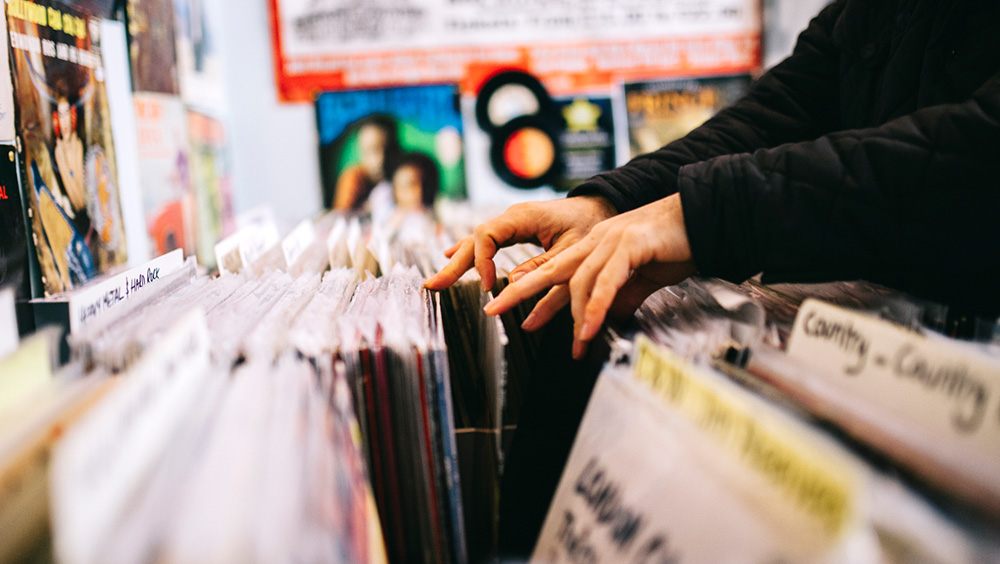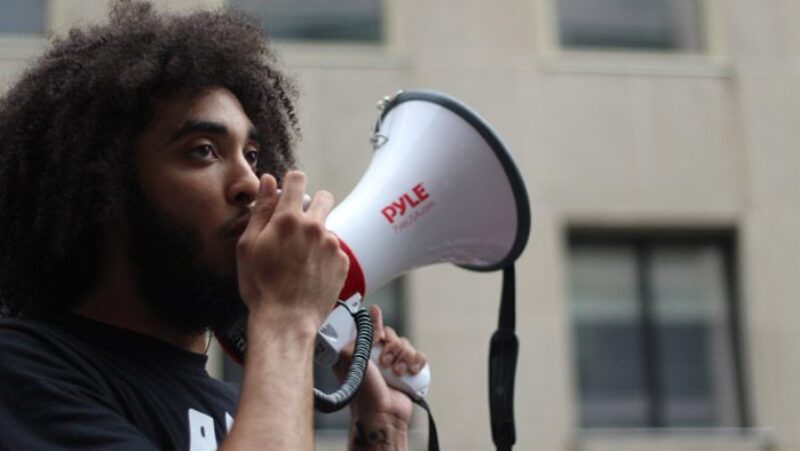How (and Why) These 16 Famous Songs Were Banned

Music is not explicitly mentioned in the First Amendment. But songs and the people who write, perform, produce and promote them are protected by it. As defined by the U.S. Supreme Court, freedom of speech covers many things beyond the pure spoken word. That includes dancing, dressing, painting, writing and, yes, singing. But if the First Amendment protects music, how are there banned songs in U.S. history? That’s a good question to unpack.
First Amendment law evolves over time. Issues around freedom of religion, speech, press, assembly and petition come before courts and judges decide cases. This is true with music censorship. The law around it has changed over time.
Government can attempt to ban songs or censor lyrics, though today, it is relatively hard for it to do so because of First Amendment protections. But private businesses, like radio and TV networks and retailers, may choose not to air or sell some music.
So, can music be banned? It’s a commonly asked but often misunderstood question. We answer that — and highlight some of the most prominent banned songs of all time — in this guide.
Banned songs throughout U.S. history
Songs and the musicians who create and perform them are protected by the First Amendment. That means the government cannot outright ban them based on their message simply because a government official doesn’t like what’s being said.
For example, consider a fictional song with the made-up lyric, “the president is an idiot.” No government official could ban the song and punish the singer, just as no regular person saying “the president is an idiot” could be legally censored or punished for saying it. That is basic freedom of speech protected by the First Amendment.
However, there are ways music can be censored or otherwise restricted by government action.
Obscenity is not protected by the First Amendment. The Supreme Court has defined obscenity to apply only to very specific and limited types of expression. That standard applies to songs performed live, streamed online and played on the radio and television.
Any song that meets the very limited and specific definition of “obscenity” could be banned from further performance on those channels.
Eminem. Ice-T. The Rolling Stones. Olivia Newton-John.
— Freedom Forum (@1stForAll) November 8, 2023
Even though the First Amendment protects music, the list of artists whose songs have been censored or restricted is a lengthy one.
Here’s how (and why) these 16 famous songs were banned.
➡️ https://t.co/XcPXViBmKv pic.twitter.com/tojTMbUGSi
The Federal Communications Commission regulates the public airwaves over broadcast radio and television. Broadcast radio and television stations (that is, not cable or internet streaming channels but those received “over the air”) must follow FCC rules. They cannot broadcast songs or videos with obscene language and imagery, again using the specific legal definition of “obscene,” which applies only to a limited amount of content. The FCC also regulates “indecent” speech, which does not meet the legal definition of obscene but may be inappropriate, between 6 a.m. and 10 p.m. when children are more likely to be in the audience.
Radio and TV networks – private companies that are not bound by the First Amendment – can choose not to play a song or music video for any number of reasons. Similarly, stores and online sellers can choose not to sell an album or allow a digital download for their own reasons. They, too, have a First Amendment right not to air or sell something.
Taking all of that into consideration, here are examples of when government and private companies tried to ban songs or otherwise restrict music.
Examples of the government trying to limit music

Bill Haley and His Comets, “Rock Around the Clock” (1955)
In 1955, local officials in Memphis, Tenn., banned the movie Blackboard Jungle. It was one of the first films to prominently feature a rock ’n’ roll song, “Rock Around the Clock” by Bill Haley and His Comets. The lyrics – including “we’re gonna rock, gonna rock, around the clock tonight” – themselves weren’t explicit or obscene, but government officials feared the song and movie would inspire juvenile delinquency.
The Kingsmen, “Louie Louie” (1963)
Indiana Gov. Matthew Welsh asked the State Broadcasters Association to ban the Kingsmen’s song “Louie Louie” because he considered it pornographic. The song, written by Richard Berry, doesn’t have explicit lyrics, but many people interpreted it as being sexual. The Kingsmen version included words that are slurred, and some people believed they heard a profanity in the recording. The band’s drummer admitted he cursed after dropping a drumstick. Radio stations banned it for being obscene. The FBI investigated the recording and its allegedly obscene lyrics. The result: inconclusive.
Rolling Stones, “Street Fighting Man” (1968)
As Chicago mayor from 1953 to 1976, Richard J. Daley and his union bosses largely ran the city and all aspects of political, cultural and social life. That included radio stations. When the 1968 Democratic National Convention came to Chicago at the height of the Vietnam War and Civil Rights protest era, Daley banned local radio stations from playing the Rolling Stones song “Street Fighting Man,” fearing it would spur violence.
When Street Fighting Man was released in 1968 - during a time of heightened violence at political events - the lyrics were deemed too controversial, with many radio stations in the US boycotting the song and refusing to play it.
— The Rolling Stones (@RollingStones) August 2, 2023
At the time Mick Jagger said he was told they… pic.twitter.com/ORQXR9RQ6q
Counterculture rock band MC5 performed heated protest songs against the war in Lincoln Park during the convention. After the performance, the tense protests turned violent. Police and protestors clashed in the following days.
Eminem, “The Real Slim Shady” (2000)
The FCC fined two radio stations $7,000 for playing rapper Eminem’s breakout hit “The Real Slim Shady.” The “clean” version of the song, intended for radio, doesn’t have outright banned words that can’t be broadcast. But the agency said the song included sexual innuendo not allowed under broadcast rules it updated earlier that year. The FCC later dropped the fine. In his 2002 follow-up song “Without Me,” Eminem called out the agency:
“So the FCC won’t let me be
Or let me be me, so let me see
They try to shut me down on MTV
But it feels so empty without me”
RELATED: Can rap lyrics be used as evidence in court?
Sarah Jones, “Your Revolution” (2001)
Many music genres, including hip hop and rap, have been criticized for their portrayal and treatment of women. Sarah Jones’ lyrical beat poem “Your Revolution” intended to call out hip hop for that reason, using explicit lyrics that included the N-word and sexual content. The FCC called out Jones and a radio station for playing it, attempting to fine the station. Jones sued the FCC, but the case was dismissed. The station wasn’t fined, as the song was ruled in compliance with FCC rules. Other stations declined to play the song while the case was ongoing.
New York City and the Grammys (2007)
Attempting to fight racism, the New York City Council passed a symbolic resolution to “ban” the use of the N-word in the city during Black History Month in February 2007. The moratorium, which passed unanimously, carried no penalty and was largely unenforceable but was meant as an educational measure. City council members also asked the Recording Academy not to nominate any artists who used the N-word in their songs for that year’s Grammy Awards. The Academy did not comply.
YG and Nipsey Hussle, “FDT” (2016)
As the 2016 presidential campaign heated up with news and rhetoric, rappers YG and Nipsey Hussle produced a song pushing back on what they did not like about what Donald Trump was saying and doing in his rallies. The song “FDT,” also known by its full name with an expletive before Trump’s name, was censored by the label as it was recorded and played on radio stations. YG claimed the U.S. Secret Service pressured his label to censor the lyrics and title of the song. Los Angeles police shut down filming of the song’s video after receiving calls about street racing. Footage of the police intervening was included in the final video. The song’s popularity in sales and streaming spiked four years after its release as Trump lost the 2020 election to Joe Biden.
Examples of broadcast networks or online platforms limiting music

Billie Holiday, “Strange Fruit” (1939)
Billie Holiday’s “Strange Fruit” is among the most haunting and controversial songs ever recorded and performed. The subject matter about Black Americans being lynched is graphic and upsetting. The roots of the song begin not with Holiday, a Black woman, but a man named Abel Meeropol. He observed the racially segregated U.S. from his viewpoint as a Russian-Jewish immigrant and wrote a poem dealing with the subject. He eventually converted the poem to lyrics and set it to music. Holiday began to perform the song in New York City, with its emotionally charged opening lines:
“Southern trees bear a strange fruit
Blood on the leaves and blood at the root
Black bodies swingin’ in the Southern breeze
Strange fruit hangin’ from the poplar trees”
Radio stations banned the song and many patrons of integrated nightclubs who were otherwise fans of Holiday would leave when she started to perform it.
Loretta Lynn, “The Pill” (1975)
The 1970s were a time of great change legally and socially, including around women’s reproductive rights. Two years after the Supreme Court legalized abortion nationwide in Roe v. Wade, country star Loretta Lynn released “The Pill” about a women’s choice to use birth control. Many country music radio stations, often playing for a more socially conservative audience, refused to play the song.
In 1975, Loretta Lynn was one of the biggest stars in country music when she released a song that was quickly banned by many country radio stations. The song, “The Pill,” was an ode to birth control and sexual freedom https://t.co/V1uQv8ZkZv
— TIME (@TIME) October 4, 2022
Olivia Newton-John, “Physical” (1981)
Radio stations banned Olivia Newton-John’s “Physical” because of its sexual innuendo, such as “Let me hear your body talk.” The video, themed around multiple men working out in a gym with Newton-John, includes two men holding hands and walking away suggestively. Despite the pushback, it was among the most popular songs of the 1980s and helped launch a new phase of Newton-John's career.
Clear Channel and post-9/11 restrictions (2001)
In the wake of the September 11 terrorist attacks, many radio stations and music TV channels like MTV prioritized patriotic-themed music. Major radio station network Clear Channel (now iHeartMedia) distributed a list of “lyrically questionable” songs to its stations that they were advised not to play. The songs reference airplanes and burning, but also include John Lennon’s “Imagine” and all songs by the rock band Rage Against the Machine, known for its songs questioning authority.
M.I.A., “Paper Planes” (2007) and “Born Free” (2010)
British rapper M.I.A. has courted censorship and bans several times. Her 2007 song “Paper Planes” features prominent gunshots in the chorus, which caused MTV to censor the sounds while playing the music video. CBS’ “The Late Show with David Letterman” also cut out the sounds during her live performance. In 2010, YouTube banned the music video of “Born Free” due to its extended scenes of graphic violence by military police. YouTube later allowed the video behind an age-verified wall for people age 18+.
Robin Thicke, “Blurred Lines” (2013)
The very title of “Blurred Lines” suggests from the start that Robin Thicke’s most recognized song would spark debate. It did. Dealing with, well, blurred lines surrounding consent and sexual themes in how men and women interact, it was called “the most controversial song of the decade” only three years into that decade. YouTube banned the original unrated music video for sexual content. Some radio stations and university student unions refused to play it – not as much for explicit lyrics but for what those lyrics suggested: playing with consent. In 2019, rapper and producer Pharrell Williams, who is featured in the song and music video, said he was embarrassed by what he called the song’s “rapey” themes.
Jason Aldean, “Try That in a Small Town” (2023)
The lyrics to country singer Jason Aldean’s “Try That in a Small Town” are standard in country music, highlighting the importance of community and comparing what’s it like living in cities versus small towns. What largely stirred controversy was the music video, which used images of racial justice protests and was filmed at the site of a notorious Tennessee lynching. The TV network CMT opted not to play the music video.
Examples of stores and social reaction limiting music

Gatlin Brothers, “Midnight Choir (Mogen David)” (1979)
The Gatlin Brothers country trio, led by Larry Gatlin with his brothers Steve and Rudy, were mainstays in country music for several decades. Their 1979 song “Midnight Choir” told the story of homeless men in Tennessee drinking and singing together. The song and the lyrics “Will they have Mogen David in heaven? Sweet Jesus, if they don’t, who the hell wants to go?” prompted people to write to newspapers and radio stations asking for it to not be played. It wasn’t explicitly vulgar, but some people thought it sacrilegious combining alcohol, the imagery of heaven and the word “hell.” Venues requested they not play the song when performing live or disinvited them altogether, and some people burned their records.
Walmart and “sanitized” albums
In 1985, Tipper Gore, wife of then-U.S. Sen. Al Gore, led a group that aimed to advise parents about offensive music lyrics. The Senate held hearings on “porn rock,” and a music labeling system was adopted. In 1990, some retailers, including Walmart, stopped selling albums with labels that indicated a parental advisory for explicit lyrics. In response, record companies encouraged musicians to release alternate “clean” or “sanitized” albums that Walmart and other stores would sell.
Ice-T and Body Count, “Cop Killer” (1992)
The song about a victim of police violence who reacts with his own violence toward police is one of the most disputed songs of the past 50 years. It was released the same year as the 1992 Los Angeles riots, which were sparked by the beating of Rodney King by police. Advocacy and police groups called for it to be banned. President George H.W. Bush criticized it. Stores were warned not to sell the album. Executives at the group’s label, Warner Bros. Records, received death threats. Ice-T called it a protest song but recalled the full album and re-released it without “Cop Killer.” The group continued to perform the song live years later, with Ice-T calling it “the Los Angeles national anthem.”
30 years ago today, Right in the middle of controversy over his song "Cop Killer," Ice-T doubles down by appearing in a police uniform on the cover of Rolling Stone. pic.twitter.com/Xq1UXfhcZJ
— Eric Alper 🎧 (@ThatEricAlper) August 20, 2022
The Chicks, “Travelin’ Soldier” (2003)
The Chicks, then known as The Dixie Chicks, angered many of their loyal fans when singer Natalie Maines said on stage that the band was embarrassed to be from the same state (Texas) as then-President George W. Bush. In the post-9/11 era, as the U.S. invasion of Iraq was ramping up, such criticism caused a backlash from country music fans and executives. Their hit song “Travelin’ Soldier” and others were quickly pulled out of radio play. Stores stopped selling their music. Angry people organized gatherings to burn or run over their CDs with a tractor.
The First Amendment implications of banned songs
There are many more examples of banned songs and artists being censored or otherwise restricted. Every day on U.S. radio, numerous songs are censored because their explicit lyrics violate FCC rules. This isn’t an outright ban, but it is a form of limited censorship – one the Supreme Court has said is legal under the First Amendment.
When you hear about banned songs, it’s not usually an outright ban from the government. That is extremely rare because of the First Amendment. Rather, the action is likely from radio, television and streaming companies. They are exercising their private right to censor content on their platforms. The same goes for stores that ban or restrict sales of an album or artist. Most often, the companies are responding to pressure (or perceived pressure) and calls for boycotts against the companies if they don’t act a certain way.
These companies are using their own First Amendment rights to do as they see fit for their operations and audience. The people asking them to remove or ban a song are also using their free speech; people who criticize companies for banning songs are using their free speech, too.
And the musicians at the center of banned songs, who used their free speech in writing and performing them, might benefit. Often, banning or censoring a song or band makes it more popular than it would have been without the ban.
Information from a previous Freedom Forum exhibit at the Newseum was used in this article.
Scott A. Leadingham is a Freedom Forum staff writer. Follow him on X: @scottleadingham
The Right to Be Forgotten: Everything to Know About Erasing Digital Footprints
Related Content

